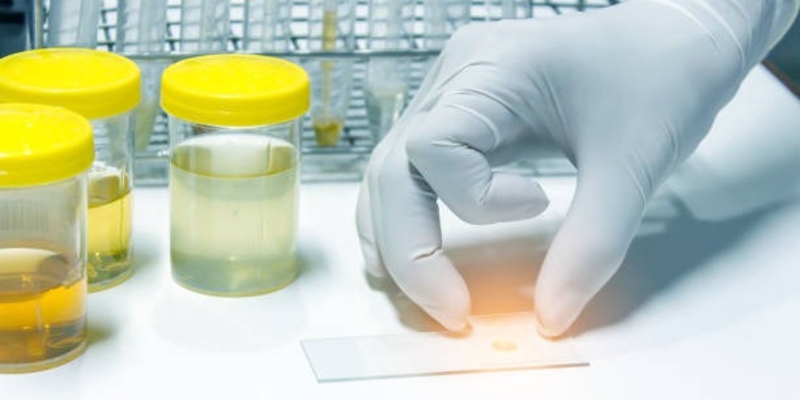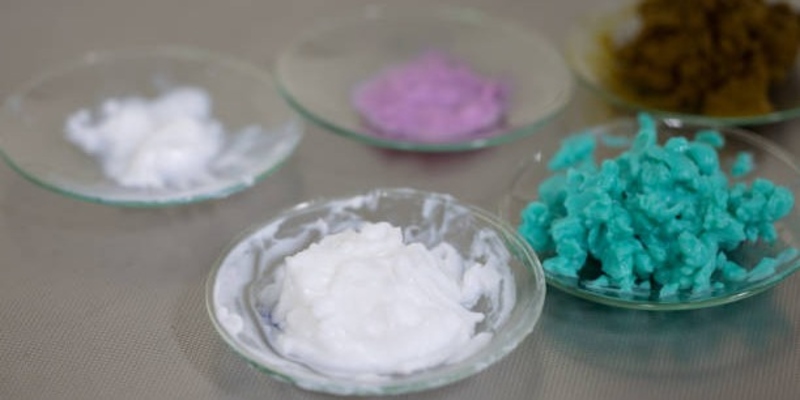The Secret Ingredient in Acne Fighting: Exploring the Benefits of Sulfur
Mar 06, 2024 By Nancy Miller
In our eternal quest for clear and radiant skin, the beauty aisle is an ocean of serums, cleansers, and tonics. Yet, among the trendy products promising miracles, one has stood the test of time, almost an unsung hero in the skincare realmsulfur. Often the subject of a crinkled nose due to its characteristic smell, sulfur possesses unparalleled benefits for individuals waging war against acne. Far from being an olfactory compromise, sulfur offers a rich bouquet of skin-loving properties that warrant a closer look. At its core, sulfur disrupts the bacteria, oils, and dead skin cells trio that typically leads to acne breakouts, but its worth extends far beyond this. We're about to unravel the science behind this element.
The Origins: Sulfur throughout History in Skincare

Sulfur's foray into skincare isn't a recent affairit's a tale as old as time. Back in the Roman era, hot springs rich in sulfur were revered for their healing properties. The element found its way into ancient potions, serving as a potent antiseptic and anti-inflammatory agent. Fast forward to the 20th century, and we witnessed a significant shift from holistic remedies to sulfur-based topical solutions, formulated to address a wide spectrum of skin issues, especially acne.
Sulfur's Benefits:
Banishing Bacteria
The primary proposition of sulfur in the war against acne is its inherent antibacterial properties. Acne vulgaris, the most common form of acne, is largely driven by the presence of Propionibacterium acnes, a stubborn bacteria that flourishes in the skin's oily environment. Sulfur steps in as a pacifier, thwarting the bacterial growth and reducing the severity and frequency of breakouts.
Sebum Regulation
Sebum, an oily substance secreted by the skin's sebaceous glands, is essential for maintaining moisture. However, when overactive, it acts as a catalyst for acne. Sulfur helps modulate sebum production, striking a balance that's crucial for keeping the skin clear without stripping it of necessary oils.
Exfoliating Effect
Sulfur also imparts a gentle exfoliating effect, which is a boon for acne-prone skin. By breaking down the keratin proteins that bind skin cells together, it facilitates the shedding of dead skin cells that could clog pores, leading to a clearer complexion over time.
Anti-Inflammatory Actions
Redness and swelling are the common accompaniments to an acne breakout, owing to the body's immune response. Sulfurs anti-inflammatory properties can come to the rescue, calming the angry, inflamed areas and promising a quicker recovery.
Impression on Scars
Beyond the battlefield of active acne, sulfurs role in minimizing post-acne scarring is noteworthy. By promoting the formation of collagen fibres, it assists in healing and reduces the risk of permanent marks on the skin.
Tackling Fungal Infections
Acne is often not a solo perpetrator; it's usually part of a larger cast that includes secondary fungal infections like ringworm and yeast-based maladies. Sulfur's antifungal properties broaden its scope, ensuring all potential troublemakers are kept at bay.
Sulfur in Skincare Products:
When it comes to skincare products, the concentration of sulfur can be the difference between an effective acne remedy and, well, a whiff of mediocrity. High sulfur content, while potent, can be drying and irritating, particularly for those with sensitive skin. This is where the art of formulation comes into playcombining sulfur with soothing agents like aloe vera or hyaluronic acid to achieve a balanced concoction that combats acne with elegance.
Modern skincare products are a testament to the versatility of sulfur, including cleansers, masks, and spot treatments. These formulations offer an array of choices for incorporating sulfur into your skincare routine in a manner that suits your skin type and concerns.
Incorporating Sulfur into Your Skincare Routine
- Cleansers: A sulfur-based cleanser can be an excellent starting point for those new to sulfur in skincare. It offers a low concentration of the element, providing a gentle and consistent exposure without overwhelming the skin.
- Masks: Sulfur-infused masks offer more potent doses of this acne-fighting ingredient, making it ideal for targeting stubborn breakouts on a weekly basis. However, it's essential to follow the instructions for use carefully and not exceed the recommended frequency to avoid over-drying.
- Spot Treatments: For targeted action on troublesome pimples, spot treatments provide an immediate fix with a higher concentration of sulfur. These can be used as needed, but it's crucial to keep in mind that they may cause some skin dryness and irritation.
The Future of Sulfur in Skincare:
The role of sulfur in skincare is far from over. With advances in technology and an increasing demand for natural solutions, we can expect to see a surge in sulfur-infused products that are not only effective but also sustainable and eco-friendly.
The Impact of Sulfur in Other Industries:
Beyond its role in skincare, sulfur has made significant contributions in various other industries as well. It is a vital component in the production of fertilizers, rubber, and even gunpowder. It is also used in the manufacturing of sulfuric acid, which is essential for many chemical processes.
In addition to its industrial uses, sulfur has been utilized in traditional medicine for centuries. It has been used to treat various ailments such as digestive issues, respiratory problems, and skin conditions like eczema and psoriasis.
Sulfur Used in Acne Treatments?
Yes, sulfur has long been used in various forms of acne treatments. It can be found in over-the-counter products, prescription medications, and even used in professional dermatological procedures. Its anti-inflammatory, exfoliating, and sebum-regulating properties make it an effective ingredient for treating acne breakouts.
Types of Sulfur Used in Acne Treatments:

There are different forms of sulfur used in acne treatments, including:
- Elemental sulfur: This is the purest form of sulfur and is often used in prescription medications for treating severe acne.
- Sulfur salts: These are compounds containing sulfur that can be found in some over-the-counter acne products.
- Sulfur dioxide: This form of sulfur is commonly used in chemical peels to exfoliate the skin and remove dead skin cells.
Conclusion:
Sulfur has been a staple in skincare for centuries, and its role continues to evolve. With its anti-inflammatory, sebum-regulating, and exfoliating properties, it remains a popular ingredient in acne treatments. It is also making strides in creating sustainable and eco-friendly formulations for the future of skincare. So next time you come across a product with sulfur as an ingredient, remember its potent acne-fighting abilities and give it a try. Your skin may thank you for it!







